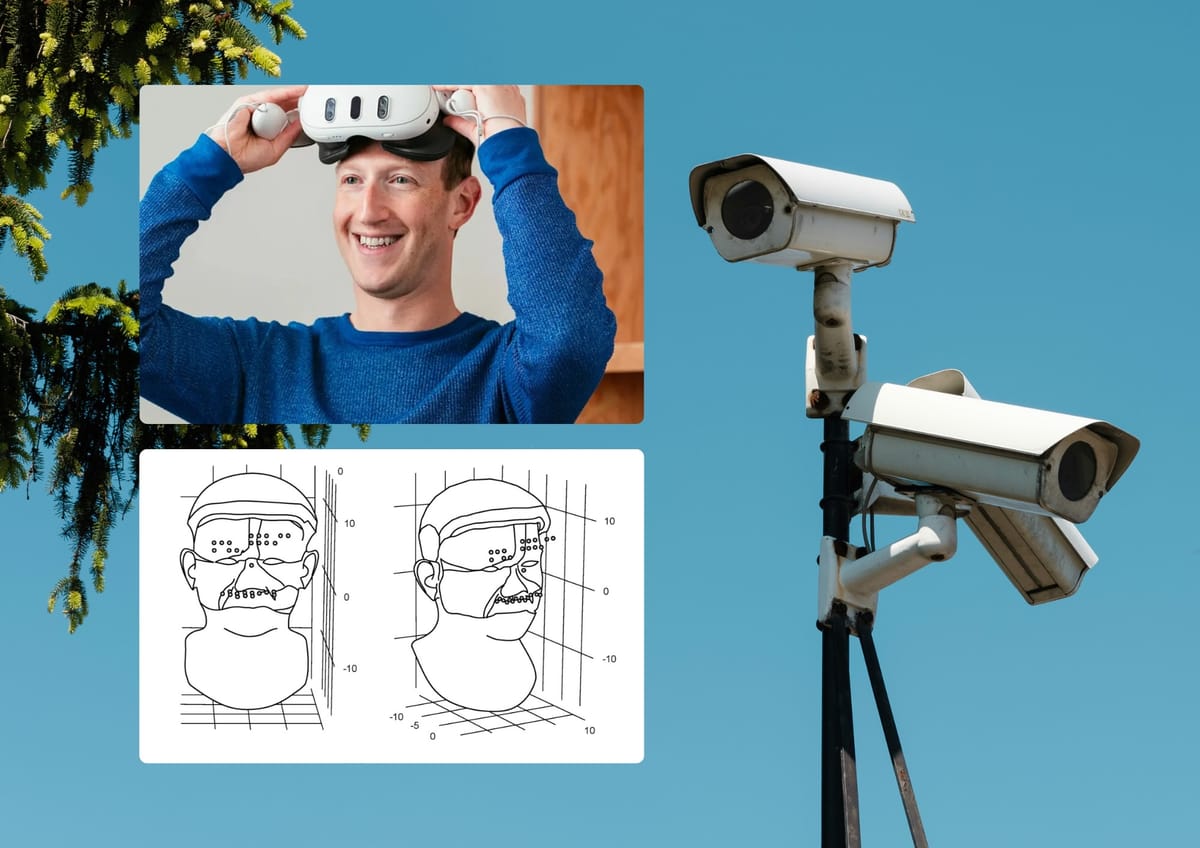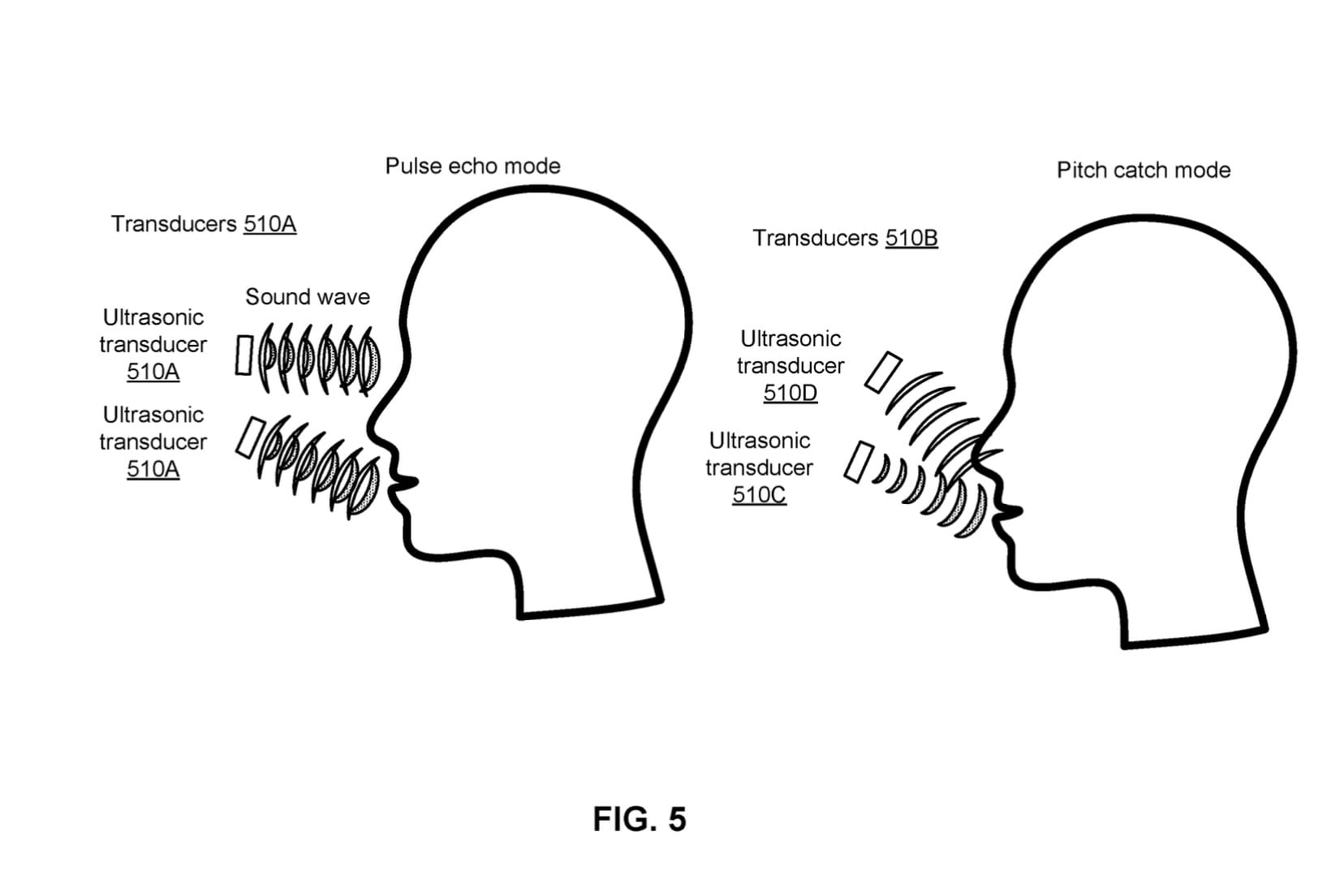Big Zucker is (still) watching: Can Meta read human emotions using ultrasound?
Social media giant invents new technology which can analyse facial expressions more effectively than traditional cameras.

Ever since President Trump took power for a second time, Mark Zuckerberg has been hard at work transforming his public image.
Over the past year or so, the billionaire Facebook founder has been pictured waterskiing, swigging beer, waving an American flag, growing his hair out and acting quite unlike a public figure who would ever be referred to by the nickname "Big Zucker".
Now, Machine has unearthed a patent granted in July 2025 that reminds us of the glory days when Zuck's team was hard at work exploring totally-not-creepy ways to potentially monetise users' data, rather than (we speculate) quietly cringing whilst their boss cosplays as a libertarian, Joe Rogan-adjacent surfer dude.
The filing is called "tracking facial expressions using ultrasound and millimetre waves" and relates to a headset that can beam waves at your face, measure how they bounce back and then use that data to track tiny movements of your skin or muscles.
This tech can be built as the sort of chunky VR goggles or smart glasses that big tech seems determined to sell us - even though we don't seem to want them.
These are fitted with transducers which transmit beams and pick up their reflections to generate sensor data which lets a machine learning model "generate an estimate of an expression of the user".
After assessing your facial expression, a VR or AR avatar can be updated so it resembles the actual gurning of your actual fizgog (bonus points to anyone who knows the meaning of this obscure piece of British slang).
It's likely the invention is intended to allow people to be more expressive when hanging around in the metaverse - a simulated corporate hellscape, sorry, virtual reality environment, which has proved even less popular than smart glasses.
From Facebook to facepalm
In another section of the patent called a "detailed description", Meta also set out the different ways it could be used, covering not just how the tech works but every way it might one day be applied.
It said the tech "may also map specific expressions of the face to specific emotions" such as "anger, contempt, disgust, fear, sadness, happiness".
Meta continued: "Some facial expressions that may be tracked include: ‘angry’, ‘check puffed’, ‘cheek raised’, ‘chin raiser’, ‘closed mouth smile’, ‘contempt’, ‘dimpler no smile’, ‘disgust’, ‘eyebrow lowered’, ‘eyebrow raised’, ‘eyes closed’, ‘fear’, ‘funneler’, ‘happy’, ‘jaw forward’, ‘jaw left’, ‘jaw right’, ‘jaw stretch gentle’, ‘lip corner lowered’, ‘lip tigtener’, ‘lower bottom lip’, ‘mouth left’, ‘mouth right’, ‘neutral’, ‘nose wrinkle’, ‘pucker lips’, ‘sad’, and ‘upper lip raiser’."
That's a lot of emotions you might want to keep to yourself. Which could be harder when faces are scanned using ultrasound, which appears to be more effective than analysis of video footage or camera surveillance.
READ MORE: Zuck vs sweat: Meta's quest to stop perspiration destroying VR headsets

"Transducers can track the motion of the face through facial hair because the ultrasound used penetrates the facial hair and reflects back from the skin," Meta said.
"As such, the transducers track motions that are obscured by cameras for some users. In some embodiments, the transducers tracks the facial expressions without any further tracking. In other embodiments, the headset fuses the data gathered from the transducers, with camera information, and even voice to capture to maximize the data capture."
It's worth pointing out that just because Meta has invented this technology, it will not necessarily see the light of day. Companies patent thousands of ideas, most of which never make it into real products - so this creation may stay on paper rather than ever reaching the market.
So although this might sound pretty creepy - there's no reason to think that Meta would ever attempt to unleash devices capable of reading emotions via ultrasound and then monitor our feelings in real-time as we go about our daily business. Sorry doomers: that's absolutely not on the cards, based on this patent.
Opinion: Facecrimes, emotional surveillance and the chill hand of the state
So what if a company that wasn't Meta or any other existing organisation decided to start scanning our feelings using remote-sensing technology?
Clearly, that would be a privacy invasion on an epic scale with clear echoes of the book which inspired Zuck's nickname.
In 1984, Big Brother dragged people off to the gulag for "facecrimes" because they wore an expression which suggested subversive or unapproved thoughts.
Let's say you see something you're not supposed to be angry about or observe a scene that a government does not want you to criticise. Could a scanner read your emotions, detect a hint of disgust in the curl of your lip and then make conclusions about your state of mind?
Unfortunately, the answer will probably soon be yes (if it isn't already).
READ MORE: Meta invents LLM system that lets dead people continue posting from beyond the grave
Authoritarian rulers paranoid about maintaining power would clearly be interested in technology which allows them to guess the thoughts of their citizens. Which we're not saying Meta has invented, just to be clear.
Tyrannical bosses would also be interested in a similar ability if it allowed them to monitor the emotions and productivity of their staff.
One of Meta's rivals recently patented a system called "emotion recognition for workforce analytics" that does exactly this.
The invention enables bosses to "identify an emotional status" by analysing footage of their faces.
"Employers may want to introduce control processes to monitor the emotional status of their employees on a regular basis to ensure they stay positive and provide high-quality service," the patent warns.
Facial precognition and a new surveillance state
In the UK, facial recognition cameras are now rolling out across the country in a move privacy campaigners have described as "worrying for democracy" . Could they one day do more than simply picking criminals out of crowds - and what would this do to our society?
George Orwell gave us a clue in his writing about the telescreen - a fictional two-way video device enabling omnipresent surveillance and propaganda.
He wrote: "It was terribly dangerous to let your thoughts wander when you were in any public place or within range of a telescreen. The smallest thing could give you away.
"A nervous tic, an unconscious look of anxiety, a habit of muttering to yourself - anything that carried with it the suggestion of abnormality, of having something to hide"
Orwell also penned the immortal lines: "Always the eyes watching you and the voice enveloping you. Asleep or awake, working or eating, indoors or outdoors, in the bath or in bed - no escape. Nothing was your own except the few cubic centimetres inside your skull."
Do we really want any company producing tech that can read our emotions?
We think not.
Today, you have the ability to stop a company from guessing what's going on in your mind by refusing to buy its products or making sure you don't work for them.
Tomorrow, well, who knows?
Best start working on that poker face...
Do you have a story or insights to share? Get in touch and let us know.
Follow Machine on LinkedIn




